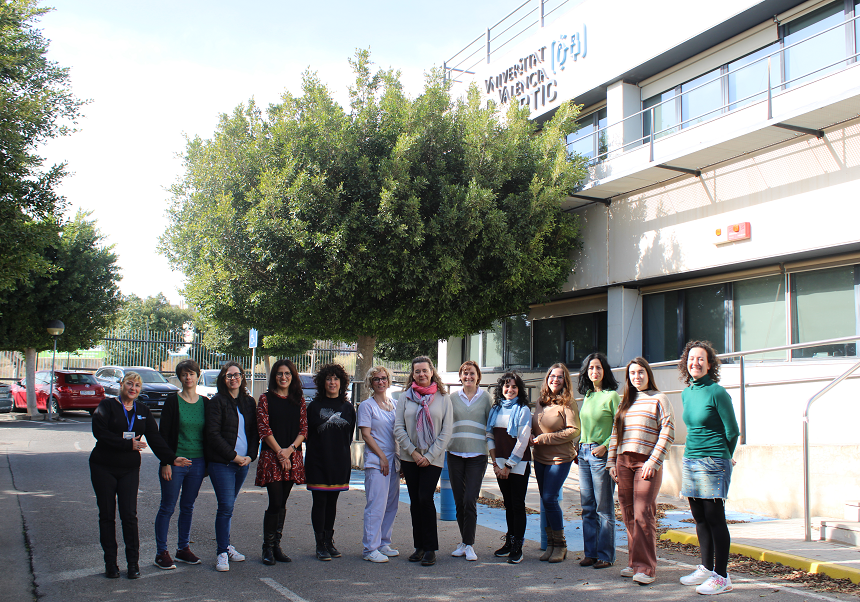
The Institute on Robotics and Information and Communication Technologies (IRTIC) has joined the celebrations on the occasion of February 11th, International Day of Women and Girls in Science. Women involved in research, project development and other activities necessary for the operation of the research center have gathered to vindicate the date and encourage scientific careers among women, especially the younger ones.
February 11th is a date declared by the United Nations (UN) as the International Day of Women and Girls in Science in recognition of the key role played by women in the scientific and technological community, as well as to encourage STEM (science, technology, engineering and mathematics) vocations.
UNESCO studies in recent years place the worldwide participation of women in these fields at around 30%, although statistics show a similar performance of boys and girls in these fields, among other situations of inequality.
Among the IRTIC researchers, Susana Pons is dedicated to systems administration and network management, and says that "since I was a child, I was better at science than literature, and it was very clear to me that I would study a scientific career".
To encourage girls and young women to take an interest in science, Susana "would tell them that studying and working in science provides skills to address technological challenges, fosters creativity and contributes to problem solving in an increasingly digital world."
Alma Virto is a lawyer and collaborates in "both national and European projects, coordinating, monitoring and justifying tasks related to the development and implementation of artificial intelligence (AI) tools that are reliable by design".
In this sense, Alma analyzes "current legislation and draft laws to ensure the implementation of reliable AI systems, as well as tools and risk and impact assessments that allow to corroborate it".
Inmaculada Coma is a full professor in the Department of Computer Science, teaches at the ETSE-UV and is a research staff of the ARTEC group of the institute, where she has participated in research projects, and directs the IA-Vis Chair.
"I was always good at science subjects, I liked solving problems, figuring out how things worked, and that's why I chose a scientific career," Inmaculada recalls. Science and technology "allow us to find solutions to problems, improve our environment and help from different fields; working in these areas is a beautiful and rewarding task," she emphasizes.
Inma García is a computer engineer and works as a researcher and developer in the field of virtual reality and augmented reality in the ARTEC group at IRTIC. "My training as an engineer came late," she says, since "when I finished high school, I graduated in Audiovisual Communication, but the 2008 crisis led me to redirect my career; computer science seemed to me a very interesting field with opportunities and that's why I opted for that path".
"Since I started my degree in Computer Engineering until today, when I teach computer science in different engineering degrees, it never ceases to astonish me that there are hardly any women in these careers," Inma points out. "I think the problem lies in the deep-rooted customs of our society, which conditions boys and girls from birth," she explains: "Every birthday and every Christmas, I see how they give cars and dinosaurs to my son and dolls and makeup to my daughter," so "inevitably, this conditions them, as does the advertising and audiovisual content they consume directly or indirectly."
"It is important to change this archaic mentality so that girls and boys can have real freedom of choice when the time comes to decide what they want to study," states Inma.
Images:












